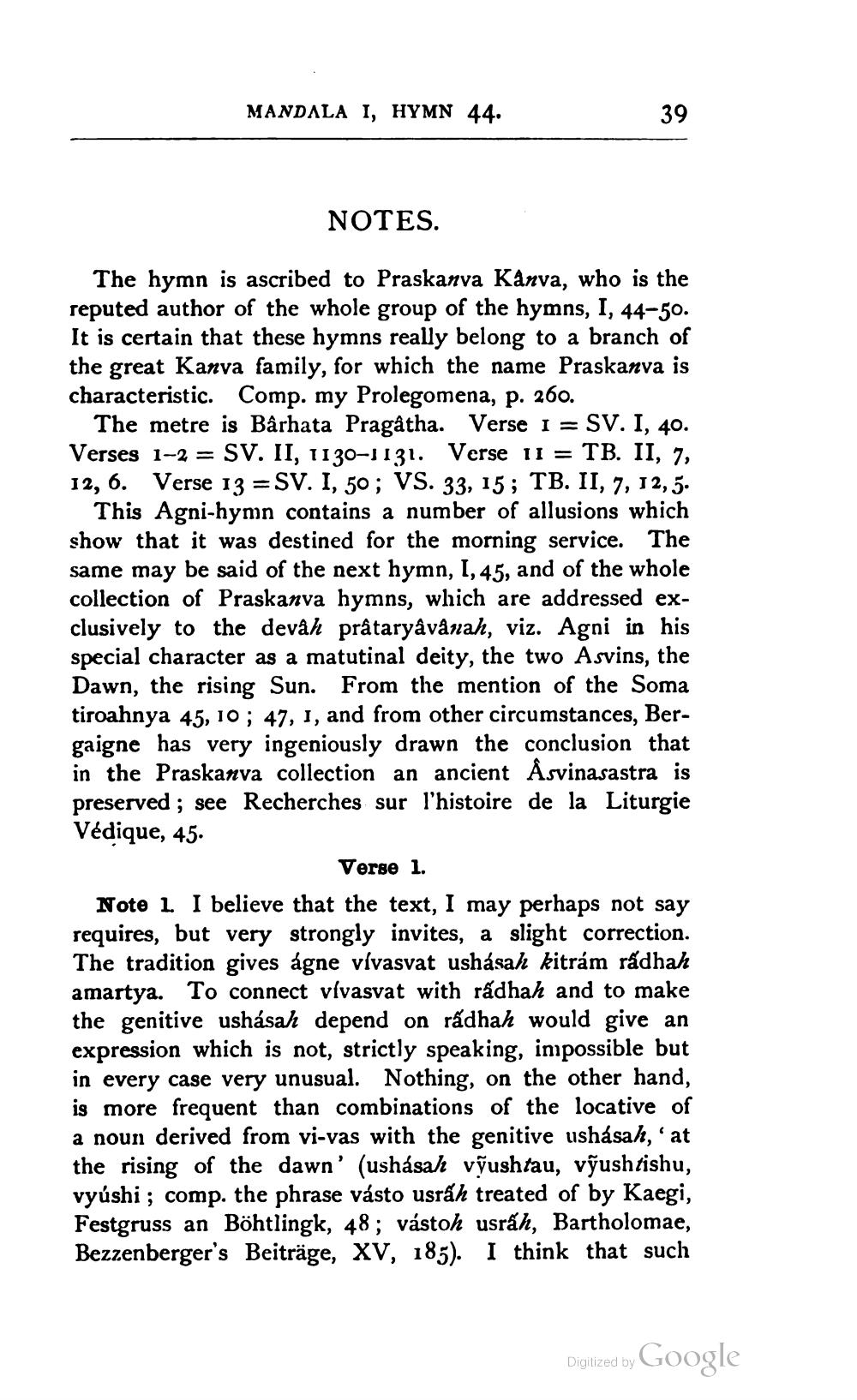________________
MANDALA I, HYMN 44.
39
NOTES.
The hymn is ascribed to Praskanva Kanva, who is the reputed author of the whole group of the hymns, I, 44-50. It is certain that these hymns really belong to a branch of the great Kanva family, for which the name Praskanva is characteristic. Comp. my Prolegomena, p. 260.
The metre is Bârhata Pragatha. Verse I = SV. I, 40. Verses 1-2 = SV. II, 11 30-1131. Verse 11 = TB. II, 7, 12,6. Verse 13 =SV. I, 50; VS. 33, 15; TB. II, 7, 12, 5.
This Agni-hymn contains a number of allusions which show that it was destined for the morning service. The same may be said of the next hymn, I, 45, and of the whole collection of Praskanva hymns, which are addressed exclusively to the devâh prâtaryâvânah, viz. Agni in his special character as a matutinal deity, the two Asvins, the Dawn, the rising Sun. From the mention of the Soma tiroahnya 45, 10; 47, 1, and from other circumstances, Bergaigne has very ingeniously drawn the conclusion that in the Praskanva collection an ancient Åsvinasastra is preserved ; see Recherches sur l'histoire de la Liturgie Védique, 45.
Verse 1. Note 1. I believe that the text, I may perhaps not say requires, but very strongly invites, a slight correction. The tradition gives ágne vivasvat ushásah kitrám rádhah amartya. To connect vlvasvat with radhah and to make the genitive ushásah depend on radhah would give an expression which is not, strictly speaking, impossible but in every case very unusual. Nothing, on the other hand, is more frequent than combinations of the locative of a noun derived from vi-vas with the genitive ushásah,‘at the rising of the dawn' (ushása) võushtau, võushtishu, vyúshi; comp. the phrase vasto usrah treated of by Kaegi, Festgruss an Böhtlingk, 48; vastoh usrah, Bartholomae, Bezzenberger's Beiträge, XV, 185). I think that such
Digitized by Google




